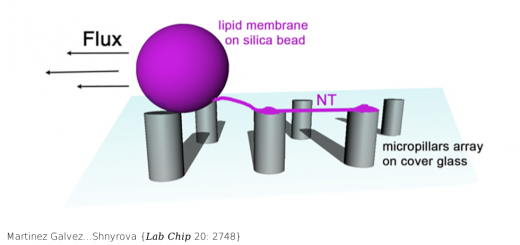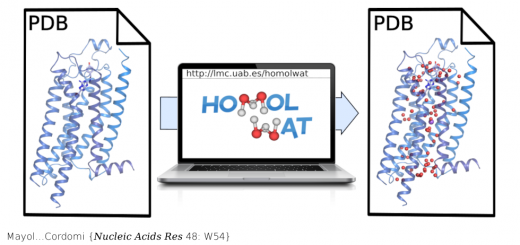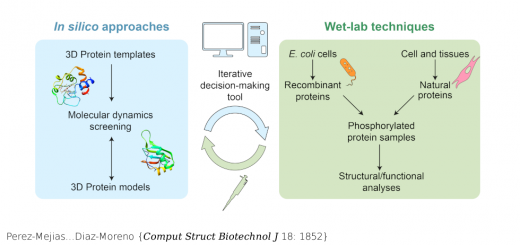Mutational Studies on Resurrected Ancestral Proteins Reveal Conservation of Site-Specific Amino Acid Preferences throughout Evolutionary History
Risso VA, Manssour-Triedo F, Delgado-Delgado A, Arco R, Barroso-del Jesus A, Ingles-Prieto A, Godoy-Ruiz R, Gavira JA, Gaucher EA, Ibarra-Molero B, Sanchez-Ruiz JM.
Mol Biol Evol. 2015 Feb.; 32: 440 [Epub 12 November 2014].
Local protein interactions (“molecular context” effects) dictate amino acid replacements and can be described in terms of site-specific, energetic preferences for any different amino acid. It has been recently debated whether these preferences remain approximately constant during evolution or whether, due to coevolution of sites, they change strongly. Such research highlights an unresolved and fundamental issue with far-reaching implications for phylogenetic analysis and molecular evolution modeling. Here, we take advantage of the recent availability of phenotypically supported laboratory resurrections of Precambrian thioredoxins and β-lactamases to experimentally address the change of site-specific amino acid preferences over long geological timescales [….]
PubMed:
25392342.
Doi:
10.1093/molbev/msu312





